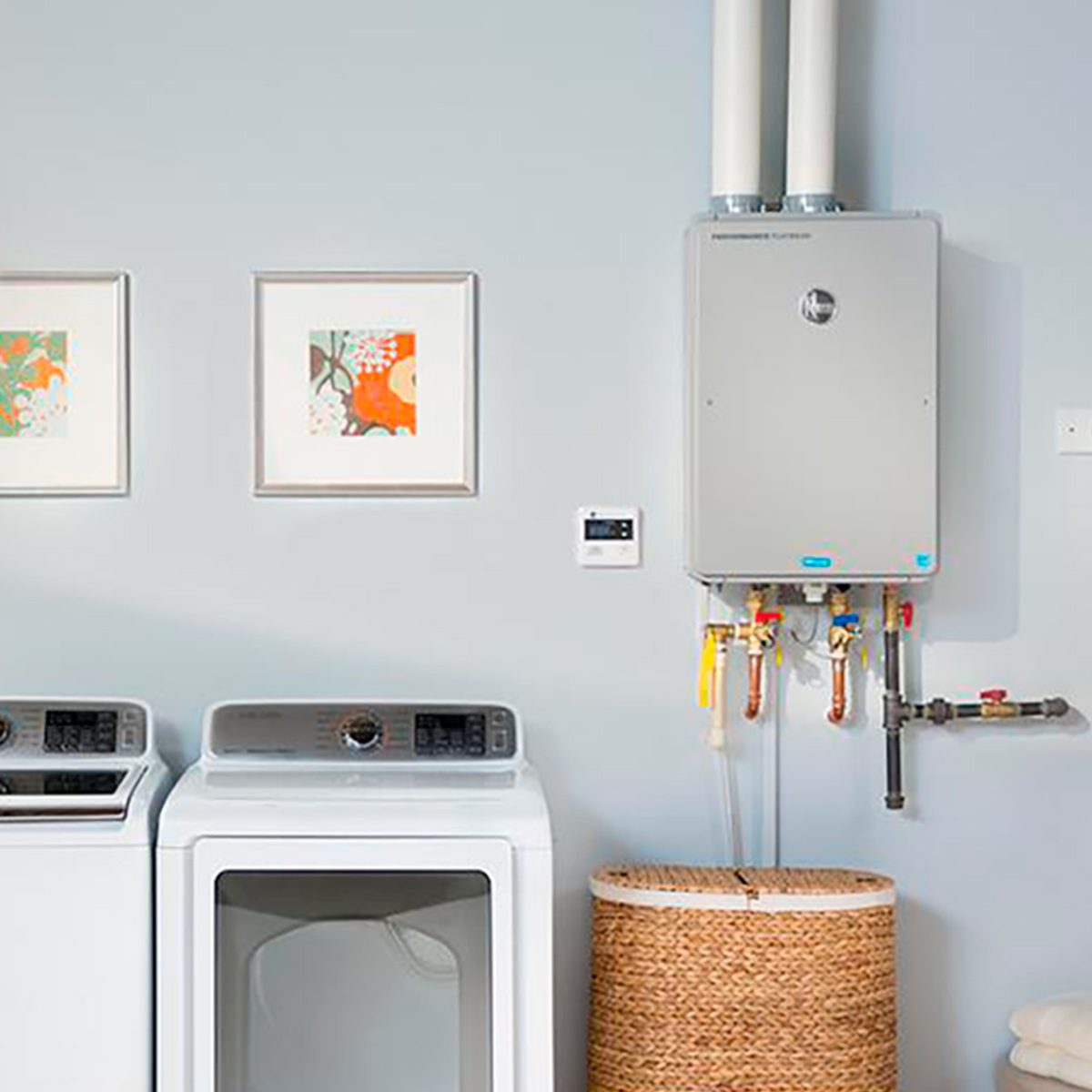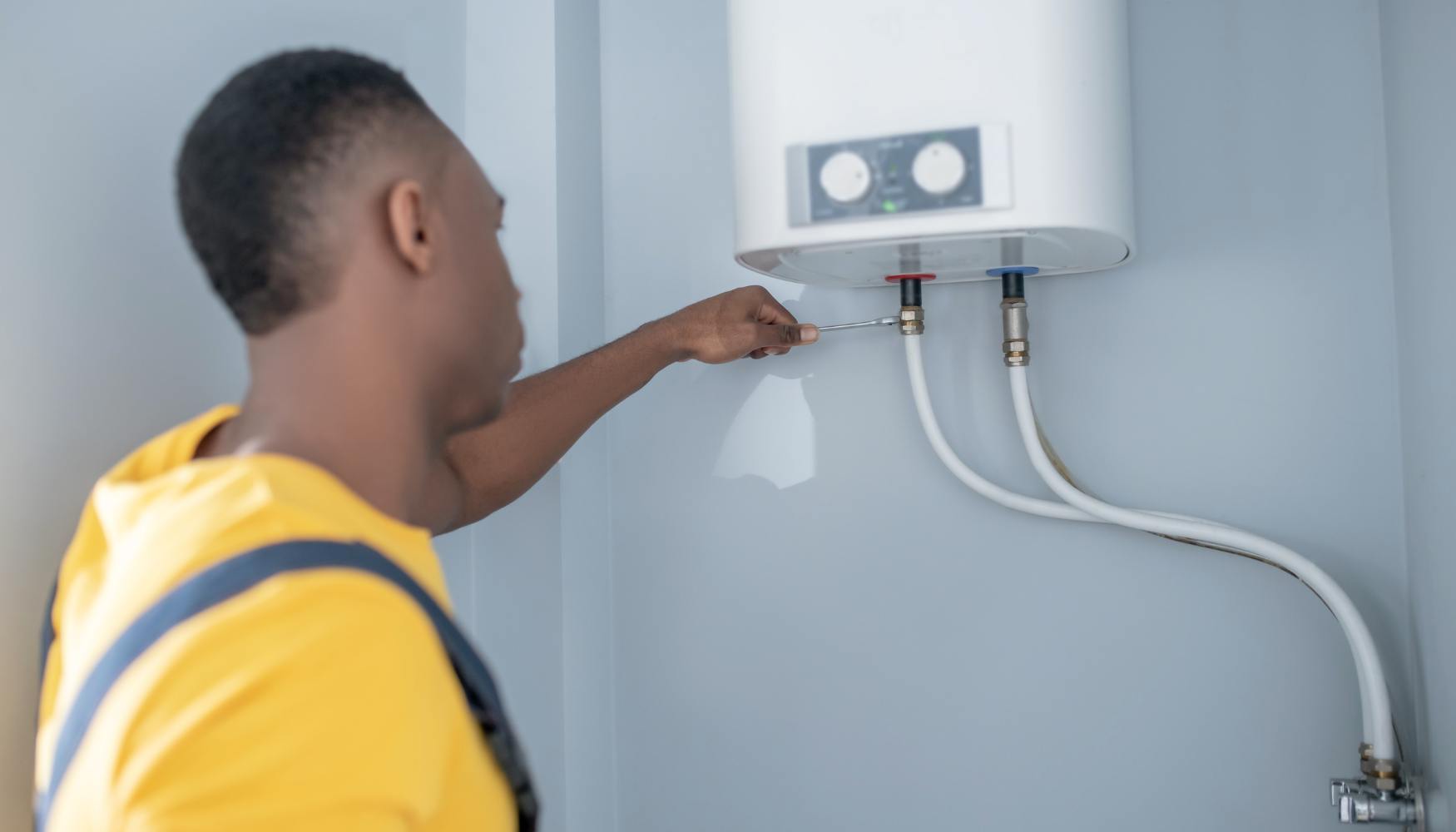We've noticed this post pertaining to Pros and Cons of Tankless Water Heater down the page on the internet and believe it made perfect sense to share it with you on my blog.

In a globe where comfort and effectiveness reign supreme, it's no surprise that homeowners are frequently in search of smarter means to handle their home's energy consumption and comfort. One innovation that has actually steadily acquired popularity is the tankless hot water heater. Yet what exactly makes these systems attract attention from the traditional tank-based designs a lot of us grew up with? Allow's dive in and discover the benefits of tankless water heaters, assisting you decide if it's time to make the switch in your home.
Intro
Picture this: you enter the shower after a lengthy day, expecting a comforting waterfall of warm water, only to be welcomed by icy beads because the last person used it all up. Sound familiar? Conventional water heaters store a set quantity of hot water, suggesting you go to the mercy of that container's supply. Tankless systems, on the other hand, warm water as needed. Say goodbye to running out mid-shower, say goodbye to fumbling with schedules simply to make sure warm water is readily available.
Understanding Tankless Hot Water Heater
What Are Tankless Hot Water Heater?
Tankless water heaters, occasionally called on-demand or immediate hot water heater, give warm water only as it's needed. As opposed to storing gallons of pre-heated water, these devices kick into action the moment you activate the tap. Water goes through a heat exchanger, warming up in real-time, suggesting you get a nonstop flow of warm water without the requirement for a huge container resting idly by.
Just how Do They Differ from Standard Systems?
Conventional heaters hold a reservoir of warm water, using power to keep that storage tank at a regular temperature level. Tankless devices remove the standing supply, reducing thrown away power and the bulky impact of a big cylinder. Essentially, you're upgrading from a "accumulation" way of thinking to a "made-to-order" strategy.
Usual Sorts Of Tankless Devices
Tankless water heaters generally come in 2 varieties: gas and electrical. Gas versions have a tendency to supply greater circulation rates, suitable for larger homes, while electric models commonly offer smaller sized homes and are commonly easier to set up. Additionally, some systems are made for point-of-use (offering one component) while others can take care of the entire home's warm water needs.
Secret Benefits of Tankless Water Heaters
Power Performance and Price Savings
No more heating a titan container's worth of water and keeping it toasty all day. Tankless heating systems minimize standby energy losses, which can decrease utility expenses. While the first expense could be higher, the lasting cost savings often validate the financial investment.
3. Space-Saving Design
If your home is short on storage, getting rid of the bulky storage tank maximizes useful space. Tankless devices are small and can commonly be placed on walls, stashed in corners, or mounted in tight utility storage rooms without hogging the whole space.
4. Longer Life-span
A well-kept tankless water heater can outlive its tank-based cousin. Traditional containers may last 10-15 years, while tankless versions can keep downing along for two decades or more, making them a solid investment over time.
1. Endless Warm Water Supply
Ever before needed to arrange showers so everybody obtains their reasonable share of hot water? With tankless, that comes to be a thing of the past. As long as the heating system's flow ability isn't surpassed, you can take back-to-back showers without developing into a popsicle.
5. Improved Water Quality
Saving water in a storage tank can sometimes result in sediment buildup or a somewhat "off" preference. With tankless systems, fresh water is heated up instantly, minimizing the possibilities of debris accumulation and potentially using cleaner-tasting water.
Factors to consider Before Changing
Though the advantages are engaging, it's a good idea to think about a couple of aspects prior to completely dedicating.
Evaluating Your Home's Water Usage Patterns
If your household simultaneously utilizes multiple components with high warm water need, make sure the system's flow rate meets your demands. Recognizing your use patterns aids you choose the appropriate size and kind of tankless heating system.
Maintenance and Care Tips
Tankless systems are reasonably reduced maintenance, yet they aren't set-it-and-forget-it home appliances.
Regular Cleansing and Descaling
Hard water minerals can accumulate in the warmth exchanger, influencing efficiency. Normal descaling (commonly suggested annually) maintains the system running at peak performance.
Yearly Specialist Assessments
A yearly checkup from a professional makes certain small problems are caught early. They'll assess the system's efficiency, look for leakages, and aid preserve optimum performance.
Initial Investment Costs
Tankless heaters usually come with a greater in advance price tag. In between the system itself and prospective installment alterations, the preliminary price could provide you sticker label shock. But keep in mind to view it as a long-term investment.
Installation Requirements
Depending on your home's infrastructure, you may need added electrical capability or gas line upgrades. Ensure you understand the setup requirements and speak with a professional to prevent surprises.
Making Certain Appropriate Ventilation
For gas models, correct ventilation is vital to safely get rid of exhaust gases. Make certain airing vent systems are tidy and appropriately installed to stop any potential safety and security risks.
Comparing Different Brands and Designs
Not all tankless water heaters are developed equal.
Researching Trustworthy Suppliers
Look for trustworthy brand names with a background of creating quality units. A reputable manufacturer frequently provides far better client support and longer service warranties.
Setup: DIY or Professional?
While some house owners enjoy tackling tasks themselves, tankless installation could not be the very best time to burst out the toolbox.
Pros and Cons of DIY Setup
A do it yourself set up might save money, yet it comes with threats. Inaccurate installment can bring about inefficiency or safety worries. If you come in handy and have experience, it could be viable-- but wage caution.
Reading Reviews and User Feedback
Customer testimonials and responses from next-door neighbors or friends that have actually gone tankless can use beneficial understandings. Occasionally, real-life experiences can be extra telling than marketing sales brochures.
When to Call an Expert Plumber
For the majority of, calling a pro ensures every little thing's done correctly. A specialist plumbing understands neighborhood codes, sizing requirements, and airing vent parameters, decreasing the danger of accidents.
Maximizing Performance
You've invested in a tankless unit-- currently optimize its performance.
Optimal Temperature Level Settings
Most individuals set their devices between 120-140 F. Adjusting the temperature level can enhance comfort and cost savings. Experiment to find a pleasant area that doesn't throw away energy.
Coupling With Low-Flow Fixtures
Want to stretch your system's abilities? Take into consideration installing low-flow showerheads and faucets. They decrease water usage, enabling your tankless system to provide a consistent stream of warm water without straining.
Ecological Effect
Tankless hot water heater line up with greener living goals.
Decreased Carbon Impact
By utilizing much less power and only heating water as needed, tankless systems can lower your home's carbon impact, minimizing your ecological impact.
Preserving Natural Resources
Less power intake and much less thrown away hot water convert right into fewer natural resources being made use of, an environmental win-win.
Who Profits Most from Tankless Heaters?
The appeal of tankless heating units is that they can fit a selection of families.
Huge Households vs. Solitary Occupants
Big families might like the limitless warm water supply, while solitary owners value the power financial savings from not warming a whole storage tank for just a single person's morning shower.
House Owners with Minimal Area
If your home is short on square video footage, shedding the bulky tank liberates room for various other fundamentals-- or perhaps just extra breathing space.
Eco-Conscious Customers
Going tankless aligns with environmentally friendly worths, ensuring you're not losing power or resources.
Future Trends in Tankless Water Heaters
The globe of home devices is ever-evolving, and tankless hot water heater are no exception.
Innovations in Modern technology
R&D is frequently enhancing warm exchangers, making units a lot more effective and sturdy. Future versions could be also quieter, much more portable, and better fit for varying environments.
Smart Home Integration
Imagine readjusting your hot water heater's temperature using an application or obtaining maintenance signals on your phone. As smart home tech breakthroughs, we'll see more connection and convenience.
Verdict
Choosing a tankless water heater is greater than just upgrading your home's warm water system; it's purchasing long-lasting convenience, power performance, and a greener way of life. By considering your family's water usage, being mindful of installment demands, and committing to normal upkeep, you can take pleasure in a stable stream of warm water without the baggage of a cumbersome tank. As modern technology progresses, you can anticipate also smarter, much more efficient tankless remedies that not only make your life simpler yet also profit the world.
Why You Should Consider a Tankless Water Heater for Your Home
Energy Efficiency and Cost Savings
Tankless water heaters, also known as on-demand water heaters, heat water only when needed. This means they don't waste energy keeping a tank of water hot constantly. This efficiency translates into substantial cost savings on your monthly energy bills.
Endless Hot Water Supply
One of the significant advantages of tankless water heaters is their ability to provide a continuous supply of hot water. Traditional tank water heaters have a limited capacity and can run out of hot water, especially during peak usage times. In contrast, tankless water heaters can provide an endless stream of hot water, making them ideal for larger families or homes with high water usage.
Space-Saving Design
Tankless water heaters are compact and take up significantly less space compared to traditional tank heaters. They can be installed on walls, under cabinets, or even outside, freeing up valuable space in your home. This makes tankless water heaters a great option for smaller homes or properties with limited space for a traditional water heater.
Longer Lifespan and Lower Maintenance
Tankless water heaters typically have a longer lifespan compared to traditional tank heaters. They can last up to 20 years or more with proper maintenance. Additionally, tankless systems are designed with replaceable parts, which can extend their lifespan further and reduce long-term maintenance costs.
Environmentally Friendly
Reducing energy consumption not only saves you money but also benefits the environment. Tankless water heaters contribute to a smaller carbon footprint by using less energy to heat water. Their energy efficiency and ability to minimize standby heat loss make them an eco-friendly choice for environmentally conscious homeowners.
Customized Temperature Control
Tankless water heaters offer precise temperature control, allowing you to set the desired temperature to meet your specific needs. This level of customization ensures you always have water at the perfect temperature for your comfort and usage requirements.
https://beantownservices.com/blog/consider-tankless-water-heater-for-your-home

I'm certainly very interested in Why You Should Consider a Tankless Water Heater and I hope you appreciated our post. Sharing is caring. Helping others is fun. Thank you for going through it.
Book-Now